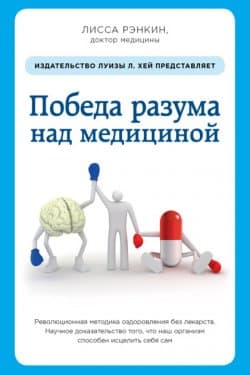Разум - Дэниэл Сигел (2019)
-
Год:2019
-
Название:Разум
-
Автор:
-
Жанр:
-
Язык:Русский
-
Страниц:201
-
Рейтинг:
-
Ваша оценка:
Автор книги рассказывает о своём исследовании происхождения человеческого разума. Он говорит о том, что разум не ограничен логикой и интеллектом, но и включает в себя чувства и мысли, способность к эмпатии относительно других людей и всей планеты.
Разум - Дэниэл Сигел читать онлайн бесплатно полную версию книги
Shapiro, S., Astin, J., Bishop, S., & Cordova, M. (2005). Mindfulness-based stress reduction for health care professionals: Results from a randomized trial. International Journal of Stress Management. 12(2), 164–176.
Shapiro, S. & Carlson, L. (2013). The art and science of mindfulness: Integrating mindfulness into psychology and the healing professions. Washington, DC: American Psychological Association.
Shiota, M.N., Keltner, D., & Mossman, A. (2007). The nature of awe: Elicitors, appraisals, and effects on self-concept. Cognition and Emotion, 21(5), 944–963.
Siegel, A.W. (2015). Good Leg. Song with lyrics and music © Alex Siegel, 2015.
Siegel, D.J. (2006). An interpersonal neurobiology approach to psychotherapy: How awareness, mirror neurons and neural plasticity contribute to the development of well-being. Psychiatric Annals, 36(4), 248–258.
Siegel, D.J. (2007). The mindful brain: Reflection and attunement in the cultivation of well-being. New York, NY: W.W. Norton & Company.
Siegel, D.J. (2009): Mindful awareness, mindsight, and neural integration. Journal of Humanistic Psychology, 37(2), 137–158.
Siegel, D.J. (2010a): Mindsight: The new science of personal transformation. New York, NY: Bantam/Random House.
Siegel, D.J. (2010b). The mindful therapist: A clinician’s guide to mindsight and neural integration. New York, NY: W.W. Norton & Company.
Siegel, D.J. (2012a). The developing mind: How relationships and the brain interact to shape who we are. (2nd ed.). New York, NY: Guilford Press.
Siegel, D.J. (2012b). Pocket guide to interpersonal neurobiology: An integrative handbook of the mind. New York, NY: W.W. Norton & Company.
Siegel, D.J. (2014). Brainstorm: The power and purpose of the teenage brain. New York, NY: Tarcher/Penguin.
Siegel, D.J., & Bryson, T.P. (2012). The whole-brain child: 12 revolutionary strategies to nurture your child’s developing mind. New York, NY: Bantam/Random House.
Siegel, D.J., & Bryson, T.P. (2014). No-drama discipline: The whole-brain way to calm the chaos and nurture your child’s developing mind. New York, NY: Bantam/Random House.
Siegel, D.J., & Hartzell, M. (2003). Parenting from the inside out: How a deeper self-understanding can help you raise children who thrive. New York, NY: Tarcher/Penguin.
Siegel, D.J. & Siegel, M.W. (2014). Thriving with uncertainty. In Le, A., Ngnoumen, C.E., & Langer, E.J. (Eds.), The Wiley Blackwell handbook of mindfulness (Vol. 1, Ch. 2, pp. 21–47). Malden, MA: Wiley Blackwell.
Smith, S.M., Nichols, T. E., Vidaurre, D., Winkler, A. M., Behrens, T. E. J., Glasser, M. F., Ugurbil, K., Barch, D. M., Van Essen, D. C., & Miller, K. L. (2015). A positive-negative mode of population co-variation links brain connectivity, demographics, and behavior. Nature Neuroscience, 18(11), 1567–1571.
Solomon, M.F. &. Siegel, D.J. (Eds.). (2003). Healing trauma: Attachment, mind, body and brain. New York, NY: W.W. Norton & Company.
Sperry, R. (1980). Mind-brain interaction: Mentalism, yes; Dualism, no. Neuroscience 5 195–206.
Spreng, R. N., Mar R. A., & Kim A. S. N. (2009). The common neural basis of autobiographical memory, prospection, navigation, theory of mind and the default mode: A quantitative meta-analysis. Journal of Cognitive Neuroscience. 21, 489–510.
Stapp, H. (2011). Mindful universe: Quantum mechanics and the participating observer (2nd ed.). New York, NY: Springer.
Stoller, R. J. (1985). Observing the erotic imagination. New Haven, CT: Yale University Press.
Strathern, M. (1988). The gender of the gift: Problems with women and problems with society in Melanesia. Berkeley, CA: University of California Press.
 Покорность Мишель Уэльбек
Покорность Мишель Уэльбек
 Поля надежды Александр Авраменко, Виктория Гетто
Поля надежды Александр Авраменко, Виктория Гетто
 Двери во Тьме Андрей Круз, Мария Круз
Двери во Тьме Андрей Круз, Мария Круз
 Победа разума над медициной. Революционная методика оздоровления без лекарств Лисса Рэнкин
Победа разума над медициной. Революционная методика оздоровления без лекарств Лисса Рэнкин
 Мысли, которые нас выбирают. Почему одних захватывает безумие, а других вдохновение Дэвид Кесслер
Мысли, которые нас выбирают. Почему одних захватывает безумие, а других вдохновение Дэвид Кесслер
 История мозга. 1640 фактов Стивен Джуан
История мозга. 1640 фактов Стивен Джуан

 Пир теней
Пир теней  Князь во все времена
Князь во все времена  Когда порвется нить
Когда порвется нить  Пока я здесь
Пока я здесь 



